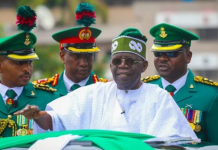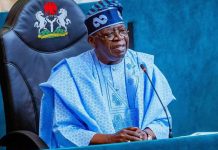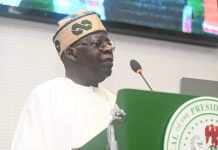Nigeria has fallen four places on the latest Corruption Perception Index (CPI) ranking released by Transparency International (TI) on Tuesday.
Although the country maintained its previous year’s score of 24 out of 100 points, it fell from 150th to 154th position out of 180 countries assessed in the 2022 ranking.
The CPI is TI’s tool for measuring the levels of corruption in the systems of various countries around the world. The maximum points a country can score is 100 points, and the least is zero. Zero signifies the worst-performing country and 100, is the best-ranked.
The latest ranking may be an indicator that the country’s fight against corruption has stalled and produced little results.
Many consider the President Muhammadu Buhari administration’s pardon granted to two jailed former governors – Joshua Dariye of Plateau State and Jolly Nyame of Taraba State – in 2022 as a major setback in the country’s anti-corruption efforts.
As of the time the two former governors were pardoned in April 2022, their convictions and sentencing had been affirmed by the Supreme Court and they had yet to serve half the length of their jail time.
The prosecution of the former governors which started under the previous administration lasted over 10 years with the Economic and Financial Crimes Commission (EFCC) having to expend scarce public funds to see the case to the end.
In previous years, Nigeria had experienced a consecutive drop in the CPI ranking. It scored 26 in 2019, 25 in the 2020 assessment, and 24 in the last 2021 record.
The Nigerian authorities, on the other hand, have always criticised any unfavourable TI’s reports that point to worsening corruption in the country.
It claimed last year, in reaction to the 2021 assessment, that the global anti-corruption body lacked the basis upon which it could rank Nigeria.
According to Transparency International Chair, Delia Rubio, global corruption levels have been stagnant for 11 years in a row.
“Corruption has made our world a more dangerous place. As governments have collectively failed to make progress against it, they fuel the current rise in violence and conflict – and endanger people everywhere. The only way out is for states to do the hard work, rooting out corruption at all levels to ensure governments work for all people, not just an elite few.”






